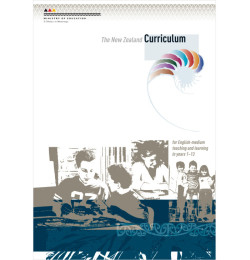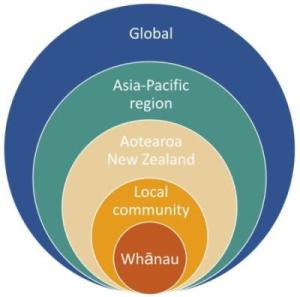In today’s world, climate change, Indigenous rights, humanitarian need and many other issues confront us, and global citizenship education has never been more important.
Teachers considering introducing global citizenship education (GCED) to their students might be forgiven for wondering where this will fit in an already overcrowded timetable. This article explores where and how global citizenship education fits within the New Zealand Curriculum. This is by no means a complete list of suggestions but hopefully will provide some ideas of where you might get started.
Global citizenship education aims to prepare students for their role as informed, responsible and active citizens in an interconnected world. It provides ākonga with the opportunity to learn about different cultures and perspectives as well as to develop the skills they need to take action on global issues such as sustainability and human rights.
At the time of writing, the social sciences curriculum refresh has concluded and Te Mātaiaho is in draft form.. This article will, however, be updated if any of the future changes affect the content. In the meantime, we recommend viewing our webinar on GCED and the Understand Know Do framework.

Vision, principles and values
The vision of the New Zealand Curriculum mentions many aspects of GCED. In particular, it encourages us towards taking opportunities to secure a sustainable, social, cultural, economic and environmental future for our country and developing ākonga who will be confident, connected and actively involved lifelong learners.
The principles of cultural diversity, inclusion, community engagement and future focus have strong links with GCED. In order to be global citizens and before we look beyond our borders, we need a good understanding of our own culture and the culture of those around us to build a solid foundation. Recognising and affirming our language, culture and identity and that of those in our community is a great place to start this journey.
Community engagement fits well with the responsibility aspect of GCED and the Act and Change aspects of our framework. The future focus principle specifically mentions sustainability, citizenship, enterprise and globalisation – important aspects of GCED.
The values in the New Zealand Curriculum include many critical elements of global citizenship education. Ākonga are asked to respect themselves and others and to respect human rights. They are encouraged to value excellence, innovation, inquiry and curiosity, diversity, equity, community and participation, ecological sustainability and integrity.
The curriculum also states that participation for the common good is associated with ideas such as peace, citizenship and manaakitanga. Global citizenship education can provide many authentic contexts for these values to be developed.
Provocations
What are the situations, problems, issues, trends, controversies and events taking place within our world (local, Asia-Pacific, global)? How can you support ākonga to discover and investigate these? What skills will they need?
How can you support ākonga to explore their own values and the values of others?
How can you support ākonga to develop the skills they need to critically analyse values and the actions (their own and those of others) that are based upon them?
How can you help ākonga to develop the skills they need to make and act upon ethical decisions?
“Te Tiriti provides the vision and mandate for New Zealand citizens to exercise their mutual responsibilities to each other ...
Knowing who we are, where we come from, and what makes us unique as a country will enable a more confident international outlook that extends within and beyond our Pacific locality to the global opportunities offered across the world.”
Te Mātaiaho, draft curriculum framework

A picture book to explore: The Circles All Around Us by Brad Montague. The story of a circle. When we're first born, our circle is very small, but as we grow and build relationships, our circle keeps getting bigger and bigger to include family, friends, neighbours, community and beyond.
Make sure you look at our articles on Global Citizenship Education and the NZ Curriculum Learning Areas and Global citizenship education in the NZ Curriculum - Key Competencies
